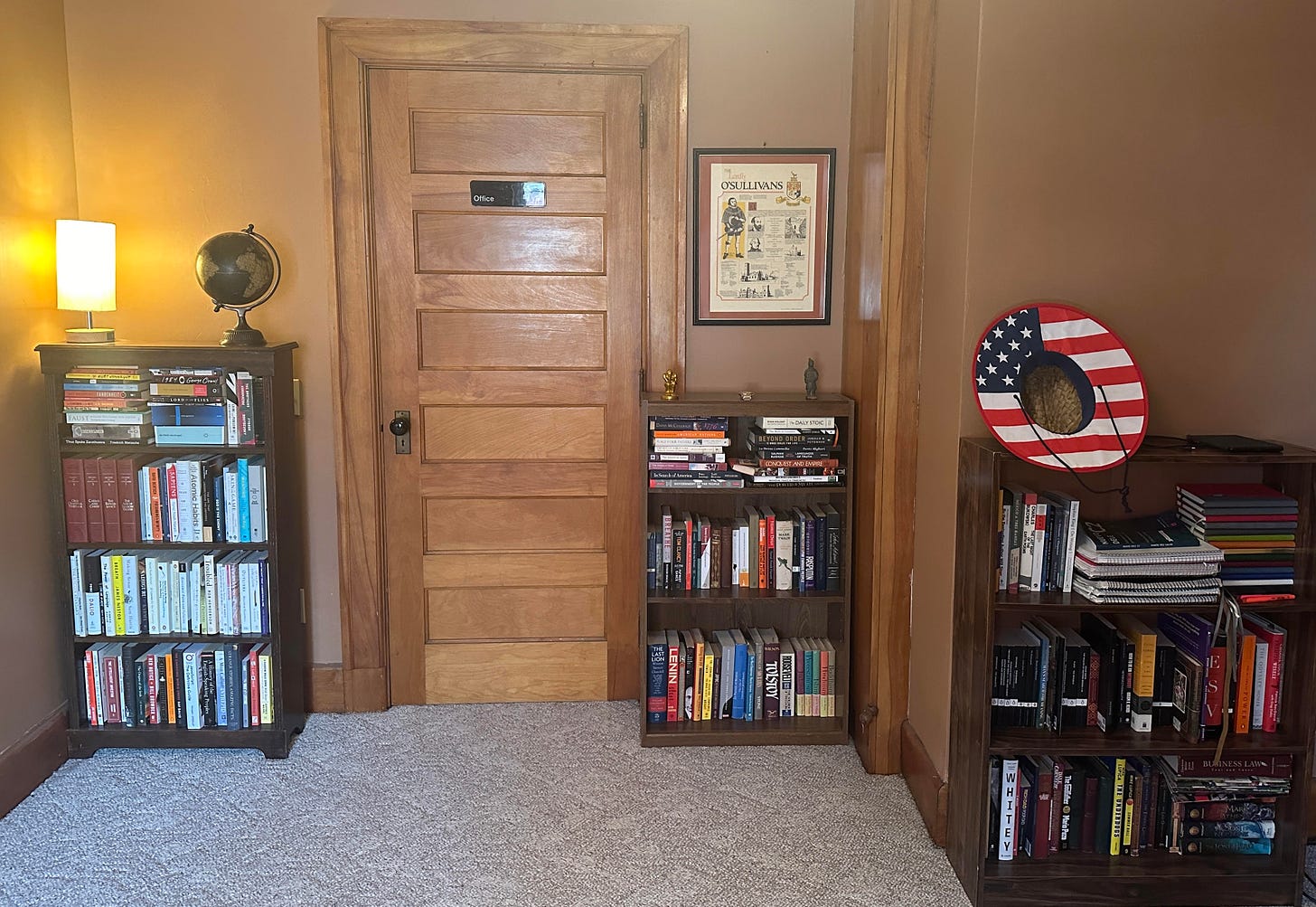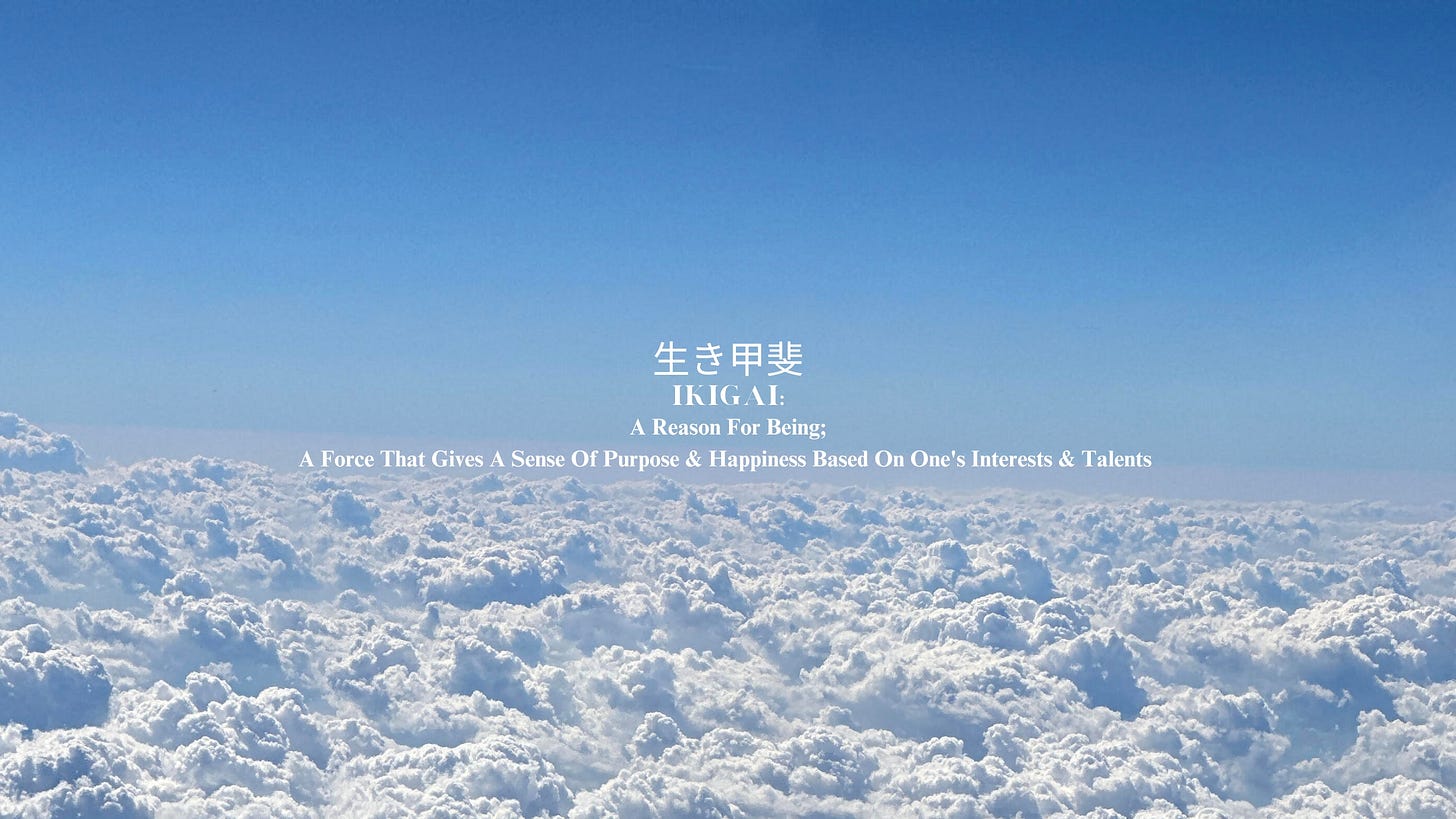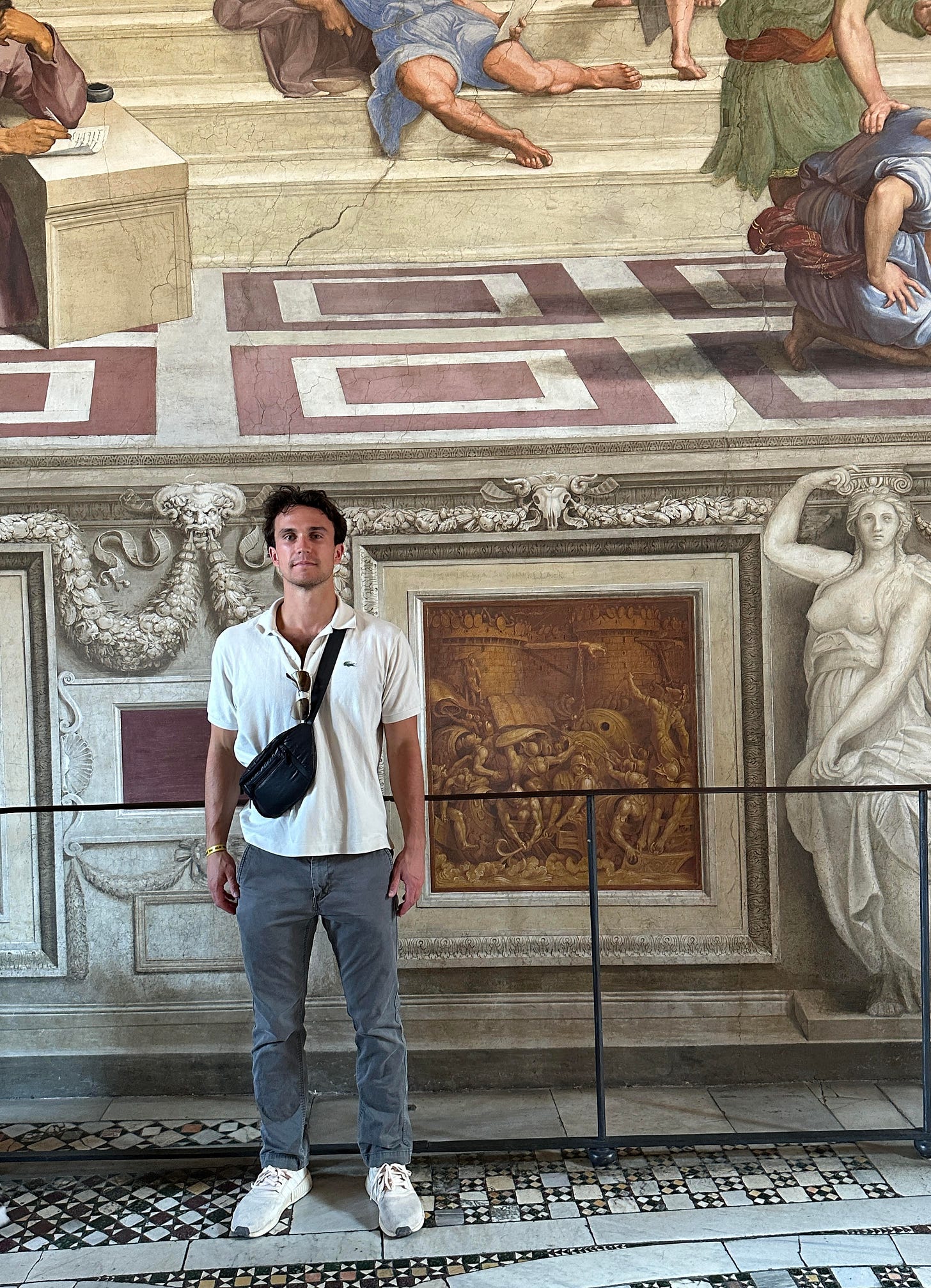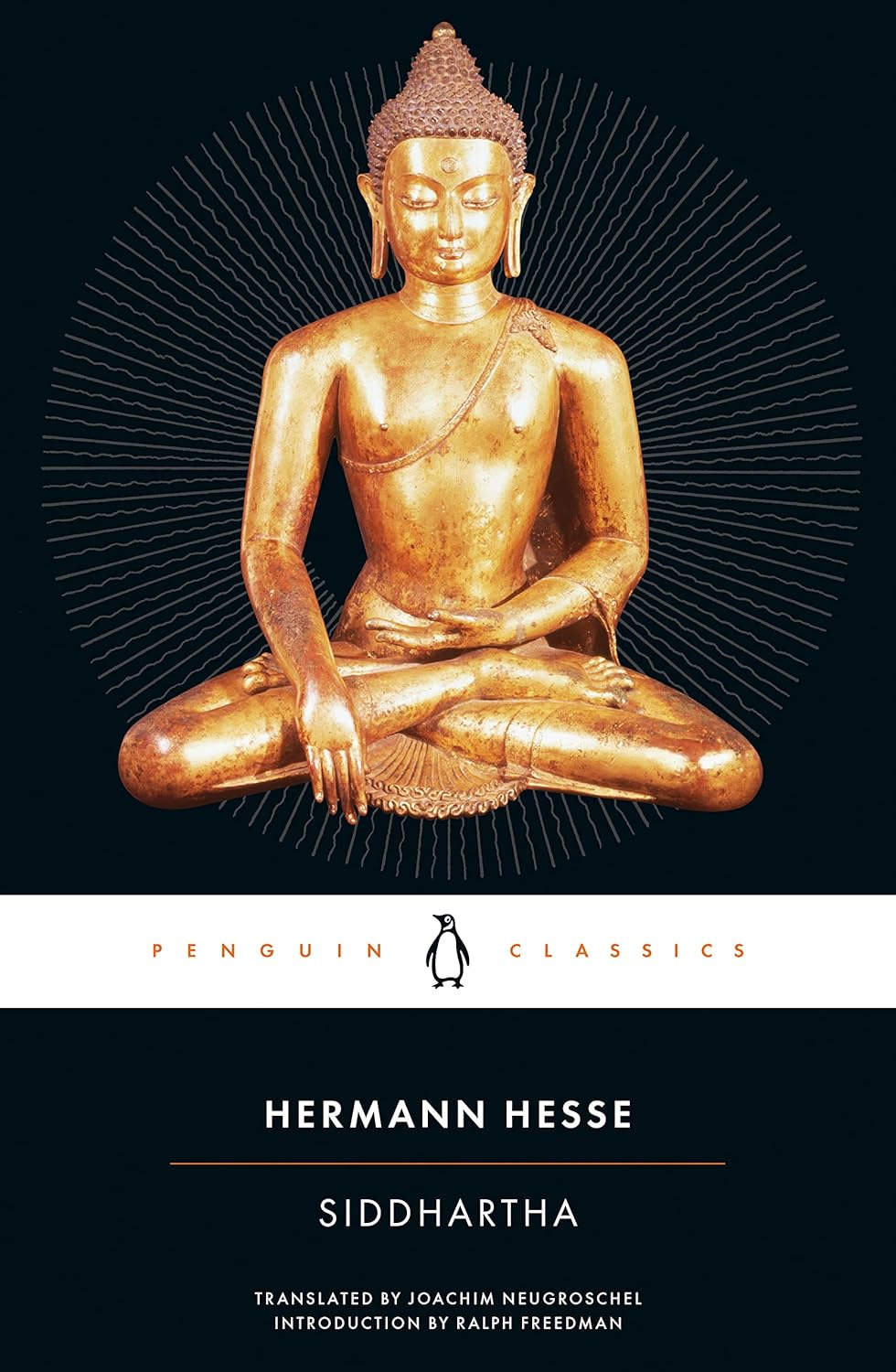New Substackers, Bitcoin, Library of Sullixandria, Idea of Infinite Importance, The Godfather, Marcus Aurelius and More
Knowledge Journey #9
Welcome to Knowledge Journeys. These paid subscriber-only articles are long-form curations of my discoveries from self-education. Each piece is a collection of stories, reflections, and insights focusing on culture, languages, and philosophy. There is a free preview of every edition. Thank you for your support. Enjoy.
Hi reader,
Some good friends are now writing on Substack. Internet friends are great. But friends you’ve known for years in the physical world becoming internet friends? That is unreal. I’m beyond excited to read more of their writing. Check them out:
Knowledge Journey #9 Table of Contents:
Behold The Library Of Sullixandria
Lesson From An Epic Scene in Godfather II
Reviewing Ikigai
What Is The History Of The School of Athens?
The Wonderful Story Of Siddhartha
“Don’t Just Do Something, Sit There”
Let’s Look At The Lyrics Of Emotionless By Drake
An Idea Of Infinite Importance
Powerful Paradoxes
Resources And Differing Perspectives On Bitcoin
Thoughts On “Proof You Can Do Hard Things” By Nat Eliason
Andrew Huberman on Dopamine
Useful Quote From Thomas Sowell
Helpful YouTube Fitness Channel
GPT-4 Explains Nietzsche’s Perspective On Apollo and Dionysus
The Intellectual Arbitrage Idea
What Abraham Lincoln Said About School…
Thoughts On “Superlinear Returns” By Paul Graham
Who Was Baltasar Gracián?
Meditations By Marcus Aurelius: Summary And Selection of Quotes
Beautiful Line From The Upanishads
Seven Steps To Sadness (Reliable Misery Hacks)
Invaluable Insight On The Human Mind
1. Behold The Library of Sullixandria
This is the Library of Sullixandria. It is my video studio, meditation room, and favorite place to speak Spanish online. The existence of this great room is in great thanks to my great father. His name is John. John Charles. My middle name is also Charles. And The Library of Sullixandria is named after the Great Library of Alexandria.
The Great Library of Alexandria in Egypt was one of the biggest and most important ancient libraries. According to Wikipedia, part of the library “was dedicated to the Muses, the nine goddesses of the arts.” In the year 48 BC Julius Caesar burned part of the library.
Oh Julius, you menace.
Thankfully, Caesar will not burn down The Library of Sullixandria. But if he did, there would be no lost gems like in Alexandria. I could get all the books back on Kindle. However I do prefer physical books. Reading a physical book in the sun is heaven, isn’t it?
2. Lesson From an Epic Scene in Godfather II
There is an epic scene in Godfather II where Michael, as new head of the Corleone family, is meeting with a corrupt U.S. Senator.
The senator is trying to screw him on a deal about the gambling business. He makes aggressive demands to Michael, thinking he can boss around the new young leader. When the senator finishes laying out his demands, he tells Michael he awaits his answer and begins to leave. As he is walking out of the room with a satisfied look on his face, Michael stops him, “You can have my answer now if you’d like, Senator,” he says.
The Senator turns around, smirking, and begins buttoning his blazer, sure he had made Michael cave.
Until Michael looked straight at the man, saying, “My offer is this: nothing.”
This is one of those movie moments that makes you want to go outside and start sprinting. Yes sir Michael. Tell ‘em.
It also made me think of what Kurt Vonnegut once said, that “we are what we pretend to be, so we must be careful about what we pretend to be.”
If that sounds wrong to you, consider the following thought experiment. I first heard this from Sam Harris, who talked about how, if in some situation you feel fear or anxiety, but still act in spite of it, you might think you were only pretending to be brave. But you actually were brave. Because you acted. The example Harris used in the thought experiment was someone running into a burning building to save a loved one. Someone running into a burning building probably felt terrified doing it, but they did it.
Similarly, a part of Michael might have felt intimidated by this Senator talking down to him. But he gave a dead-serious, cold-blooded answer. And the Senator was probably rattled afterwards, realizing that Michael ain’t playing around. You might be thinking that Michael Corleone never even felt any fear. And you’re probably right. But you still get the point.
3. Reviewing Ikigai
Ikigai (生き甲斐) is a Japanese concept that literally means a reason for being. It refers to a force that gives you a sense of purpose and happiness based on your interests and talents.
You often see it as a venn diagram of sorts, describing it as a pursuit that exists in the intersection of what you love, what the world needs, what you’re good at, and what you can be paid for.
I like this definition. It’s useful and inspiring.
That said, I once talked to a Japanese person online who said that this way of defining Ikigai focuses too much on external rewards. They emphasized that Ikigai is much more about intrinsic motivation and something that provides internal satisfaction regardless of outcomes.
4. What is the History of The School of Athens?
The School of Athens painting by Raphael is a staple of Western civilization.
I recently read the article below by Art Every Day. It is full of insights into the history of the great Italian Renaissance artists—Michelangelo, Leonardo, and Raphael. It talks about their social dynamics and shares knowledge gems about their work.
5. The Wonderful Story of Siddhartha
Siddhartha is a fiction book by Hermann Hesse, a European author. This is not the story of the historical Buddha, Siddhartha Gautama. But it is a beautiful telling of the enlightenment story. Reading this book is good for you. Just read it.
“I have had to experience so much stupidity, so many vices, so much error, so much nausea, disillusionment and sorrow, just in order to become a child again and begin anew.”
6. “Don’t Just Do Something, Sit There”
It can be useful to view life as a series of games.
From this perspective you realize that more important than winning games is making sure you’re playing the right games. As Liv Boeree said, "Intelligence is knowing how to win the game. Wisdom is knowing which game to play in the first place.” This is something I think about all the time. “Play stupid games, win stupid prizes,” Naval once quipped.
How do we make sure we are not playing stupid games?











